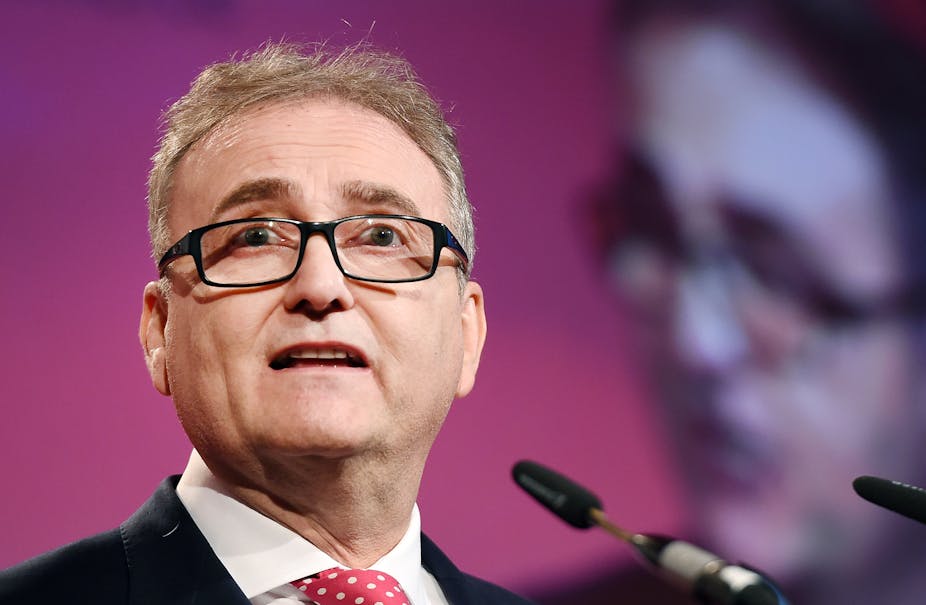There have been calls for an early referendum on the UK’s membership of the EU. But they did not originate from Conservative eurosceptic backbenchers or from UKIP, as one would expect. Instead, it was John Longworth, director general of the British Chambers of Commerce (BCC), who spoke up on the issue.
In fact, the chief of BCC made a fairly positive statement urging for the UK to remain in a reformed EU. He argued that what is important for business is neither national sovereignty nor repatriating powers – business wants to avoid “years of uncertainty”.
Size does matter
Business support of the EU tends to depend on size. Larger businesses – which are less vulnerable to international competition – are more likely to oppose a Brexit as they benefit from access to European markets, the absence of custom duties and tariffs and the harmonisation of legislation – while the free movement of labour enables them to recruit from a wide pool of potential employees and address skills shortages.
Small and medium-sized businesses, however, express a number of criticisms, especially concerning health and safety rules and the working time directive. Some businesses support the return of powers back to the member states, through such initiatives as the Business for Britain campaign.
In a tactical move, David Cameron hinted at an early referendum in January, only four months ahead of the general election on May 7. This appears consistent with public attitudes, as 78% of Britons have ranked the EU question as either very or fairly important.
Playing to public opinion
A promise for an early EU referendum could prove electorally advantageous to David Cameron. First, it is likely to – at least temporarily – satisfy Conservative eurosceptics and increase the internal cohesion of the party, which was recently compromised by a number of dissenting voices, notably Sir Bill Cash MP.
Second, it is likely to draw support from potential UKIP voters. According to the latest YouGov poll on voting intention, the Conservatives lead Labour by 1%, which could even be within the margin of error of the pollster.

Given that the Conservatives and Labour are neck and neck during the past four months, it is unclear whether the Conservatives will top the polls in the general election. Even if they do, they seem unlikely to gain sufficient support to govern alone.
The predicted 14% vote for UKIP is likely to damage the Conservatives more than the Labour party. According to polls, a large number of UKIP voters say they voted for the Conservative party in 2010. As a genuine political entrepreneur, David Cameron uses the question of Europe in order to “regain” the disillusioned voters who appear likely to vote UKIP in the upcoming general election.
This can also mobilise existing Conservative voters. Already 35% of Conservative voters believe that Britain will be better off economically if it left the EU as opposed to 15% of Labour and 10% of Liberal Democrat supporters.

A referendum too soon
Despite these electoral advantages, an early referendum would not give the British government enough time to renegotiate with the EU. In the current context of eurozone crisis and a possible Grexit, there seems to be little appetite within the EU for radical reform and substantial treaty change.
The EU question has been merged with immigration in Britain. But David Cameron’s support for quotas for low-skilled migrants from the EU seems unlikely to bear actual fruit, as Angela Merkel has already argued that: “Germany will not tamper with the fundamental principles of free movement in the EU”. A hasty campaign could also mean that the No vote would win, which seemingly is not the prime minister’s preferred outcome.
While the outcome of the EU referendum remains to be seen, one thing can be claimed with certainty: the question of Europe will play a major role in the 2015 general election – and is very likely to significantly alter the outcome.

